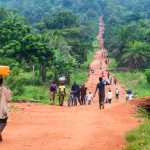Youth account for 60% of Africa’s unemployed. In Rwanda, 72% of employed youth work for family firms or are self-employed (African Economic Outlook 2016). These outcomes suggest that schools are failing to develop the skills required to enter formal sector jobs or launch and grow small firms. In response, Rwanda is one of ten African…
Entrepreneurship Education and Teacher Training in Rwanda
Project
How do Labour Markets Equilibrate?
Migrants have long been thought to play a central role in helping an economy to make efficient use of its resources. That migration acts as a force of arbitrage– that it takes place, that it encourages equilibrium, and that it leads to an efficient allocation of resources – is one of the central tenets of…

